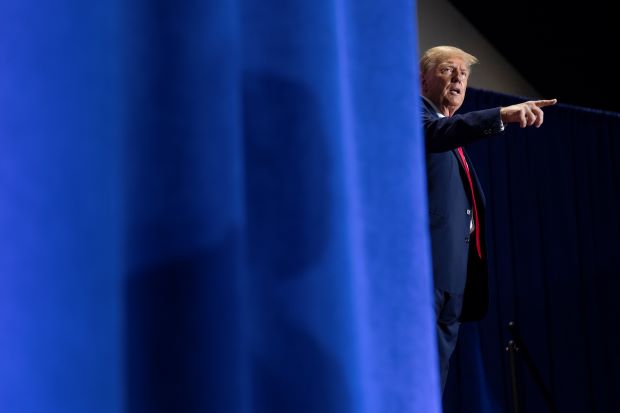US Supreme Court rules Trump stays on Colorado ballot

By Adam Liptak
WASHINGTON — The Supreme Court ruled Monday (4) that former President Donald Trump should remain on Colorado’s primary ballot, rejecting a challenge to his eligibility for another term that could have upended the presidential race by taking him off ballots around the nation.
Though the justices offered different reasons, the decision was unanimous. All of the opinions focused on legal issues, and none took a position on whether Trump had engaged in insurrection.
All of the justices agreed that individual states may not bar candidates for federal office under a constitutional provision, Section 3 of the 14th Amendment that bars insurrectionists from holding office. Four justices would have left it that.
But a five-justice majority, in an unsigned opinion, went on to say that Congress must act to give Section 3 force.
“The Constitution makes Congress, rather than the states, responsible for enforcing Section 3 against federal officeholders and candidates,” the majority wrote, adding that detailed federal legislation was required to determine who was disqualified under the provision.
— In a joint concurring opinion, the court’s three liberal members — Justices Sonia Sotomayor, Elena Kagan and Ketanji Brown Jackson — expressed frustration at what they said was the majority’s needless overreach. “Although federal enforcement of Section 3 is in no way at issue,” they wrote, “the majority announces novel rules for how that enforcement must operate. It reaches out to decide Section 3 questions not before us and to foreclose future efforts to disqualify a presidential candidate under that provision. In a sensitive case crying out for judicial restraint, it abandons that course.”
— Justice Amy Coney Barrett, in a brief concurring opinion, agreed that the majority had gone too far, saying that it should not have addressed “the complicated question whether federal legislation is the exclusive vehicle through which Section 3 can be enforced.” But she urged the public to focus on common ground. “For present purposes,” she wrote, “our differences are far less important than our unanimity: All nine justices agree on the outcome of this case. That is the message Americans should take home.”
— The decision was the court’s most important ruling concerning a presidential election since Bush v. Gore handed the presidency to George W. Bush in 2000.
— The case arose from a challenge brought by six Colorado voters who sought to disqualify Trump from the ballot for the state’s Republican primary based on Section 3 of the 14th Amendment. The provision was adopted after the Civil War to forbid those who had taken an oath “to support the Constitution of the United States” from holding office if they then “shall have engaged in insurrection or rebellion against the same, or given aid or comfort to the enemies thereof.”
— The case, Trump v. Anderson, No. 23-719, is not the only one concerning Trump on the Supreme Court’s docket. The justices said last week they would decide whether he was immune from prosecution for his role in the Jan. 6 attack on the Capitol, delaying trial proceedings in his criminal case as they consider the matter. And the justices already agreed to decide on the scope of a central charge in the federal election interference case against Trump, with a ruling by June.
-New York Times


Comments are closed, but trackbacks and pingbacks are open.